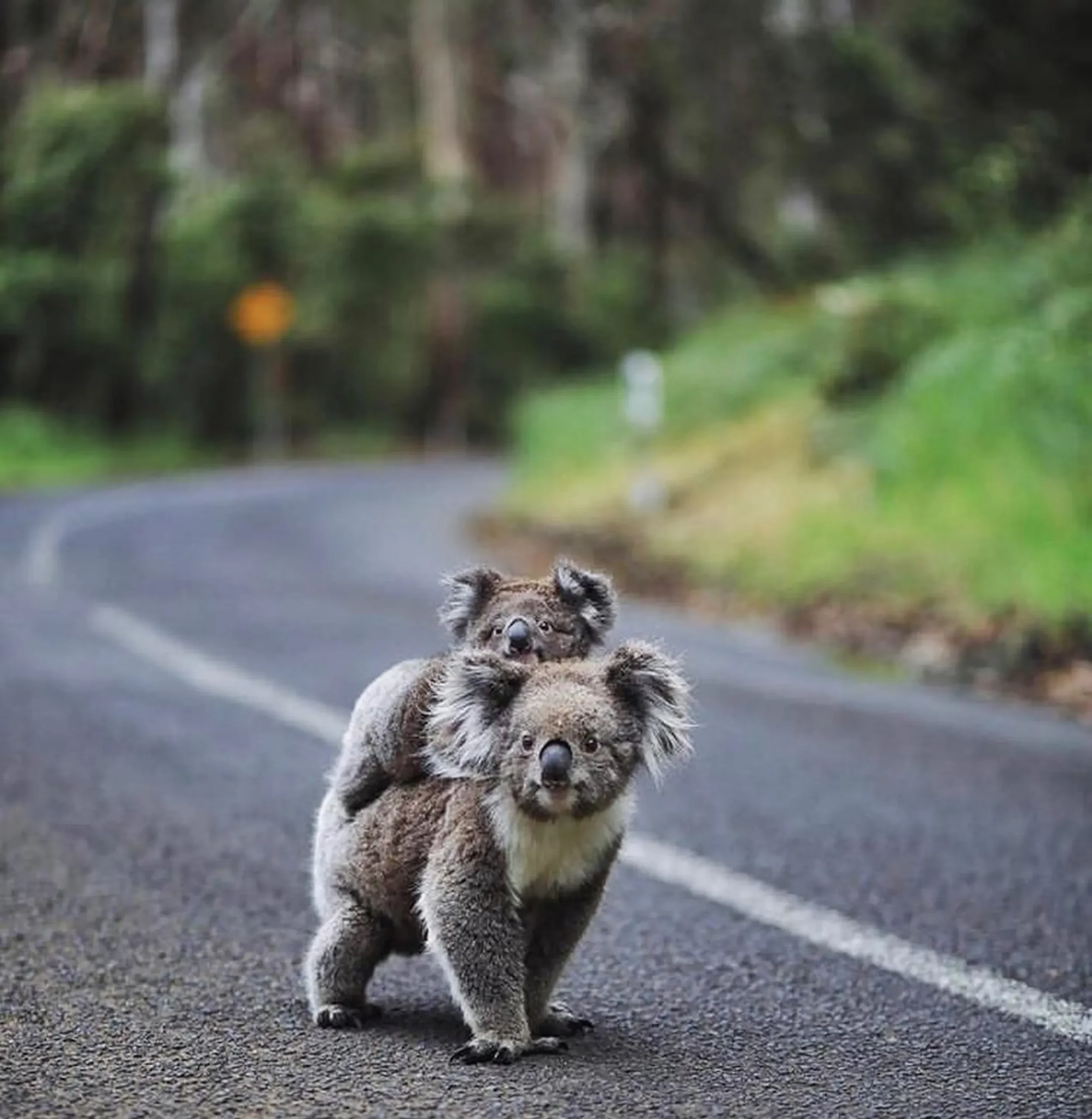The Great Ocean Road is not just a pretty drive; it’s a journey through one of Australia’s most diverse ecosystems. Along this stunning coastline, you’ll find a mix of beautiful beaches, rainforests and wildlife experiences. From ancient rainforest trails to isolated beaches and offshore islands, you’ll find the beauty of this region and meet indigenous animals, friendly creatures and iconic wildlife. Cape Otway, Melba Gully or Port Campbell National Park the Great Ocean Road has wildlife adventures for all ages.
Native Animals to See
Kangaroos and Wallabies: Australia’s Iconic Marsupials
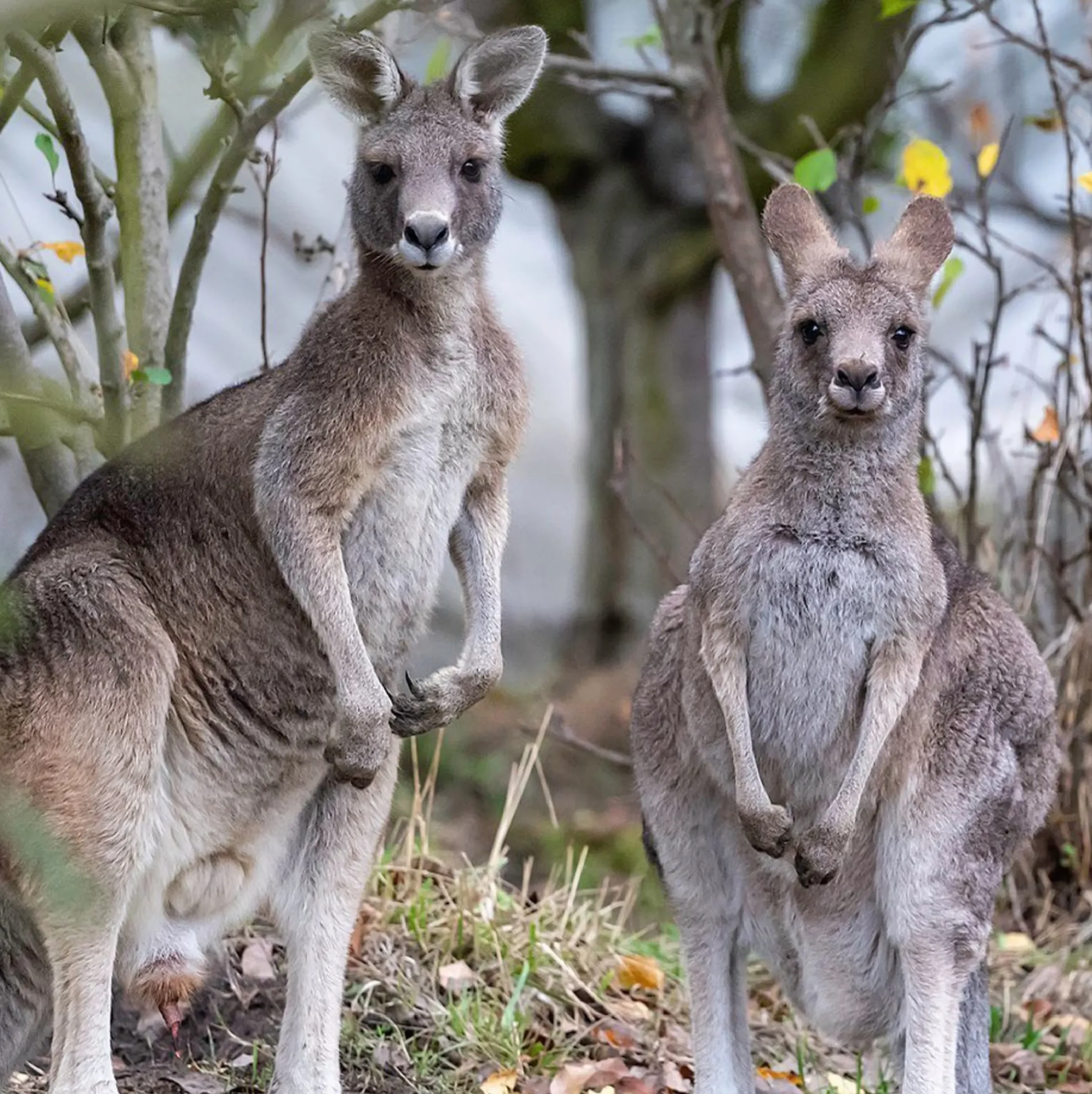
The open fields and bushlands along the Great Ocean Road are the perfect places to see Eastern Grey Kangaroos, Black Wallabies and larger kangaroos. Tower Hill Wildlife Reserve, a volcanic crater-turned-wildlife sanctuary, is home to the largest populations of these iconic animals. In cooler months, they can be seen grazing on fresh grass shoots, giving you a glimpse into their natural behaviour.
Koalas: Where to Find Them in the Wild
Koalas are one of the most popular animals to see along the Great Ocean Road. These cute critters are often seen lounging in gum trees, especially in the Kennett River area. The eucalyptus forests are the perfect place to see them in their natural habitat. Don’t forget to look up into the ancient mossy trees of Cape Otway for more koala spotting.
Echidnas: The Spiny Anteater
Echidnas are a type of monotreme mammal and fascinating but elusive animals. They can be seen scurrying along the rainforest in areas like Melba Gully. Their natural light brown spines help them blend in with the undergrowth and sandy shores.
Wombats: Rare Sights in the Hinterlands
Wombats are rarely seen but live in the bushlands near the Great Otway National Park. With patience and luck, you might see them emerge from their lakeside burrows in winter.
Marine Wildlife
Seals and Sea Lions: Shore Dwellers
The coastal cliffs and offshore islands are home to Australian fur seals and sea lions. Cape Bridgewater is the perfect place to see these herd animals basking on the beach or playing in the coastal waters. Their antics are a wildlife enthusiast’s delight.
Dolphins: Regularly Sighted in the Surf
Pods of dolphins are often seen in areas like Apollo Bay Surf. These amazing creatures can be seen leaping out of the waves along the surf beaches and isolated beaches of the Victorian coast.
Whales: Seasonal Giants of the Sea
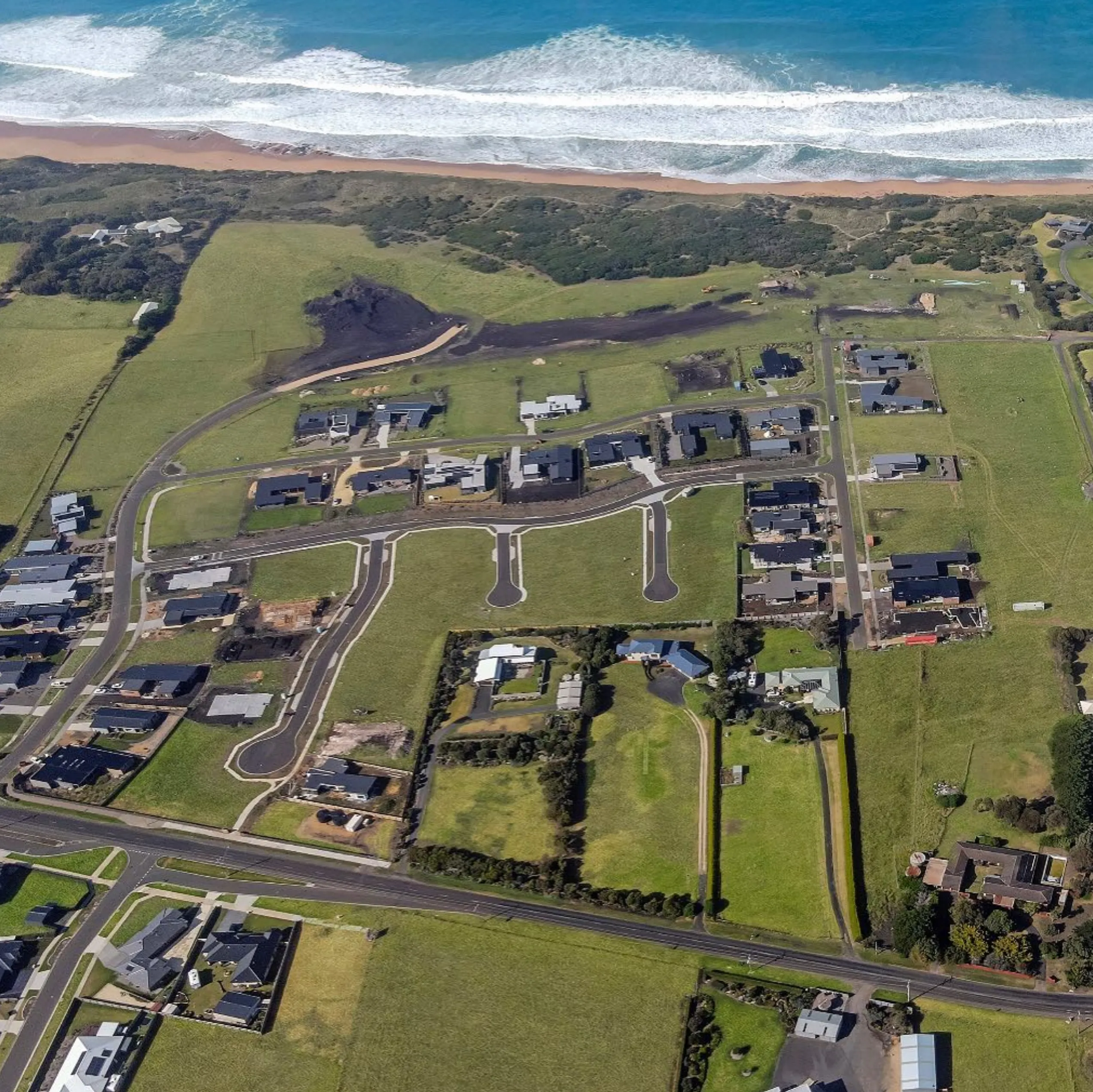
Blue whales and humpback whales migrate from May to October, and whale watching has become one of the top activities along the Great Ocean Road. Warrnambool’s Logans Beach is the best spot to see them. These giants are breathtaking as they swim through the ocean.
Penguins: The Little Penguins of Warrnambool
Little penguins, the cutest waddlers of the animal kingdom, come out of their sandy burrows at dusk. Port Fairy and Warrnambool are the best places to see them up close.
Birdlife of the Great Ocean Road
Sulphur-Crested Cockatoos and Galahs
Bright and noisy, sulphur-crested cockatoos and galahs are everywhere along the Great Ocean Road. Their bright colours light up the ancient rainforest tracks and gum trees.
Kookaburras and Their Laughter in the Trees
Kookaburras laughter is one of the most distinctive sounds of the Australian bush. Found on coastal cliffs and cliff tops, these birds are a real treat.
Rare and Endemic Bird Species to See
Great Otway National Park and Port Campbell National Park are birdwatcher’s paradises. Keep an eye out for the rufous bristlebird and other native birds in the undergrowth and rainforest.
Where to Find Wildlife
Great Otway National Park: Wildlife Heaven
Dramatic coastline views and rainforest scenery, the Great Otway National Park is a wildlife wonderland. Walk through giant tree ferns and ancient mossy trees and get up close and personal with this amazing coastline.
Tower Hill Wildlife Reserve: Up Close and Personal with Native Animals
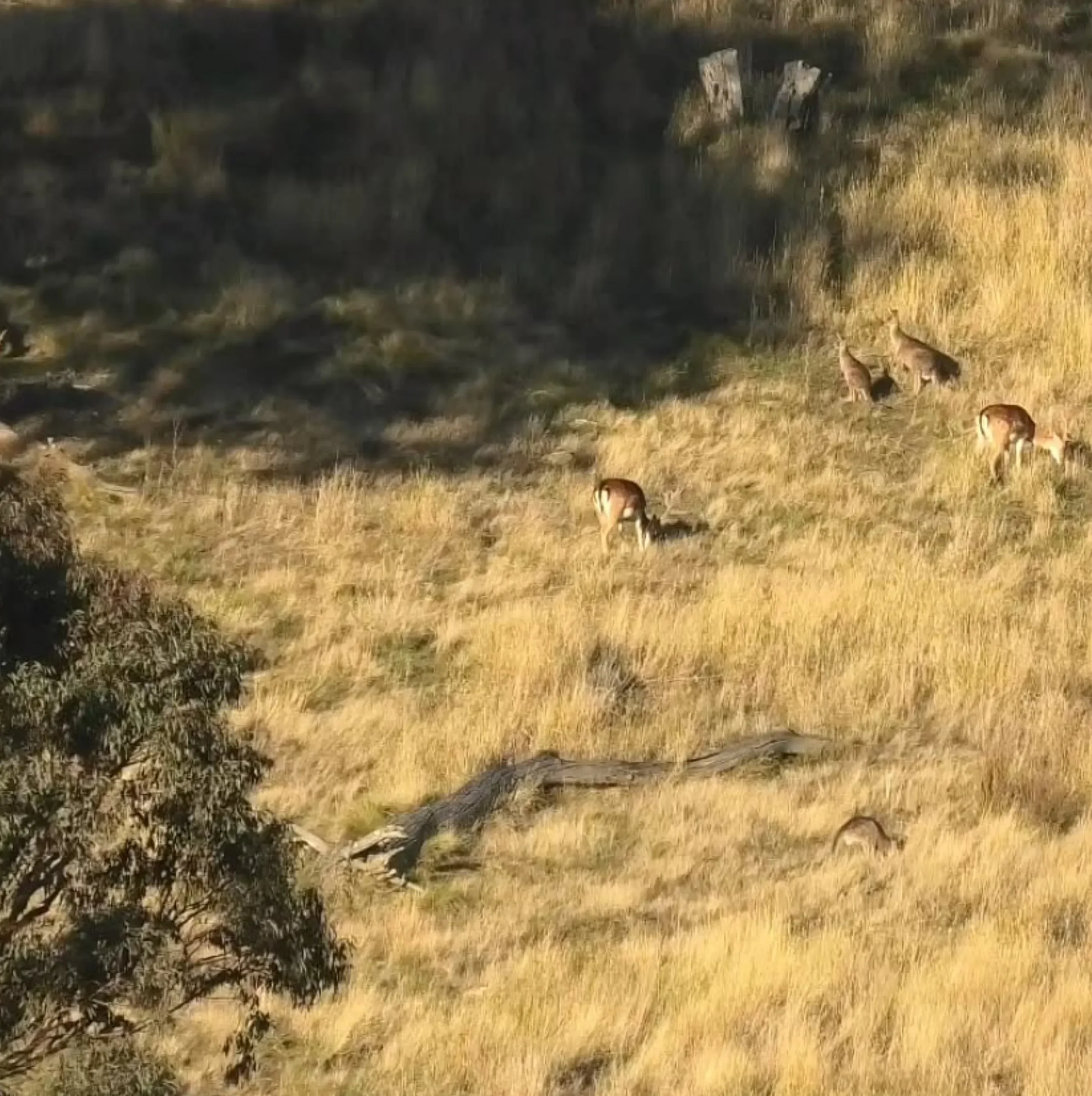
Tower Hill, a volcanic crater-turned wildlife reserve, is one of the most accessible wildlife experiences on the Great Ocean Road. See kangaroos, emus and other animals feeding in the wild.
Anglesea Golf Club: Roos on the Greens
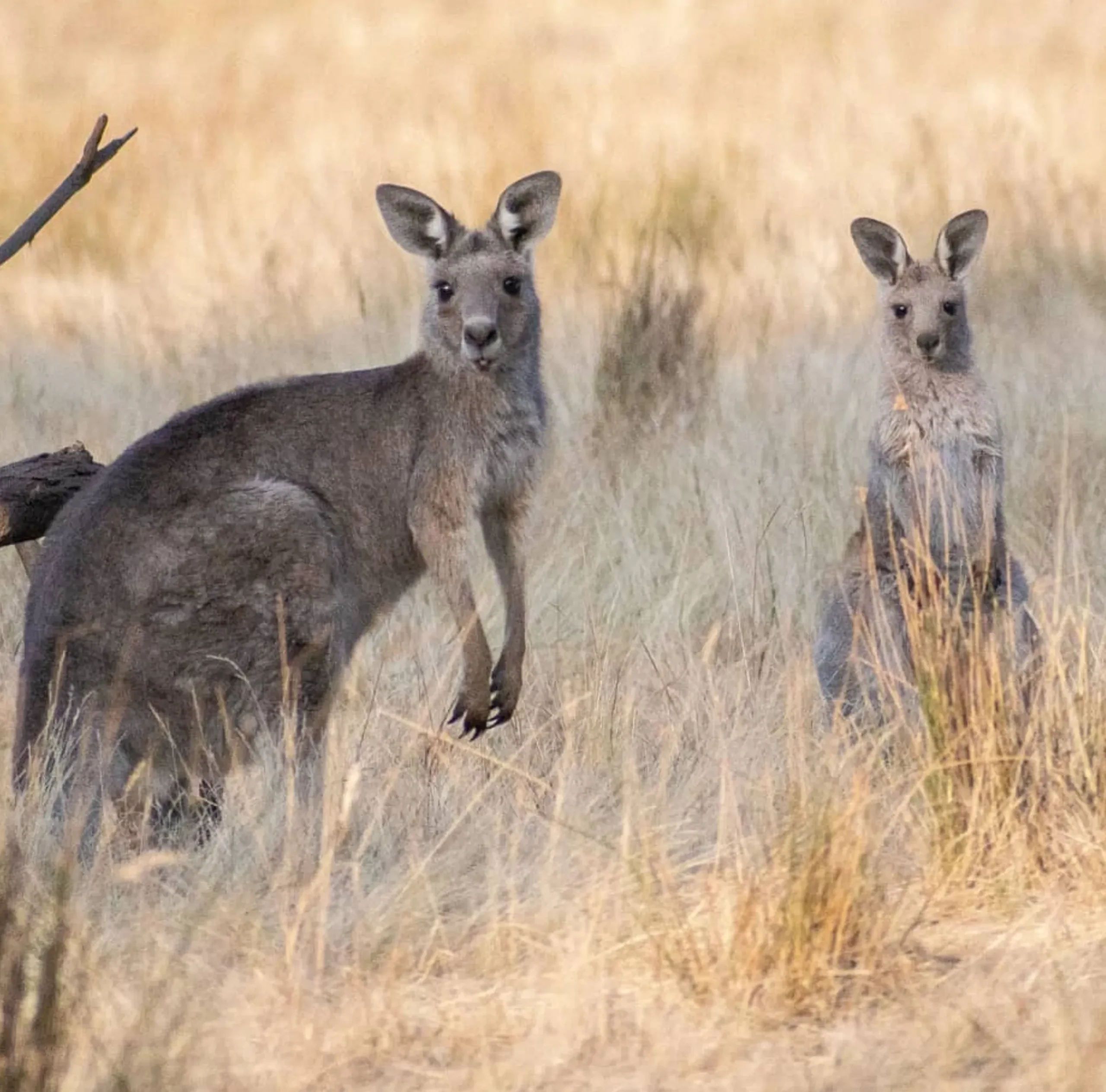
For a fun experience, visit Anglesea Golf Club where grey kangaroos roam free. A family friendly activity with wildlife too.
Johanna Beach and Port Fairy
Stunning beaches and secluded sandy shores, perfect for spotting dolphins and seals.
Best Times to See Wildlife
Wildlife is most active at dawn and dusk so these are the best times to see natural behaviour. Cooler months are best for wombats and kangaroos, summer months for sandy beaches and coastal waters.
Tips for Seeing Wildlife Responsibly
Respect Nature: Do’s and Don’ts
- Keep a safe distance from wild animals and farm animals.
- Stay on the trails to protect the rainforest and cultural heritage of the area.
- Don’t feed animals to ensure fairness in their natural environment.
Photography Tips
- Use natural light for the best shots, especially golden hours.
- Be patient and quiet for echidnas and rare birds.
- Focus on individual lights or shadows for rainforest or limestone stacks.
Extend Your Adventure
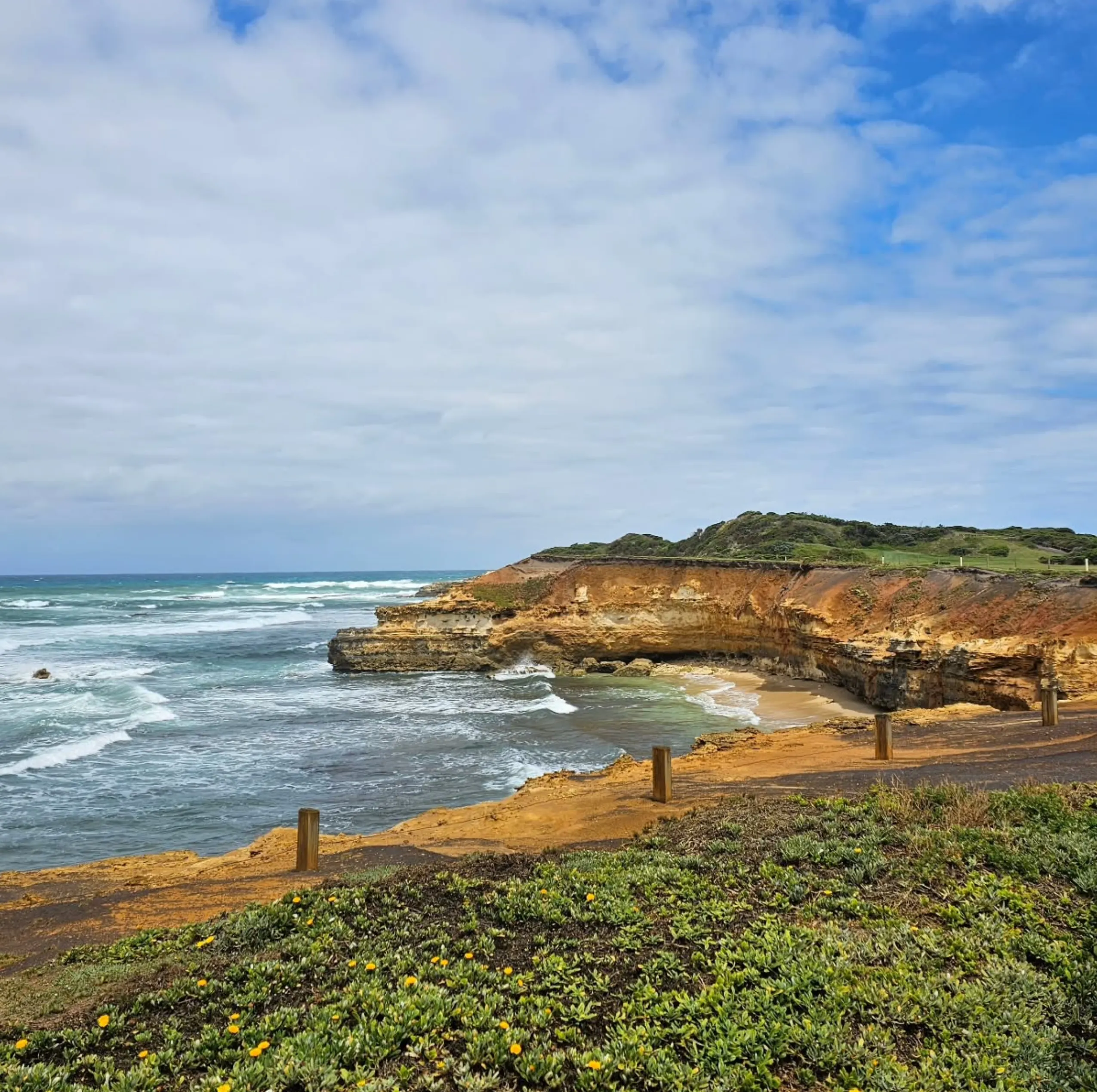
For the full experience, consider a 2 day Great Ocean Road tour or 3 day Great Ocean Road tour. This will give you time to see the whole coastline, wildlife and cultural heritage of this amazing region.
FAQ
Where is the best place to see whales along the Great Ocean Road?
Logans Beach in Warrnambool is the most popular spot for whale watching during the annual migration of southern right and blue whales.
Can I see glow worms on the Great Ocean Road?
Yes, Melba Gully is the magic spot where you can see glow worms creating fairy lights in the rainforest during the cooler months.
What’s special about Cape Otway for wildlife?
Cape Otway’s ancient rainforest and gum trees are a haven for koalas, native birds, and other wildlife, so it’s a must-see.
Are there family-friendly wildlife activities?
Yes, Tower Hill Wildlife Reserve and Anglesea Golf Club are great for family activities. Kids will love seeing kangaroos, emus and friendly animals in their natural habitat.
When to see wildlife?
Cooler months are for kangaroos, wombats, and koalas, and summer months are for beaches and coastal views.
